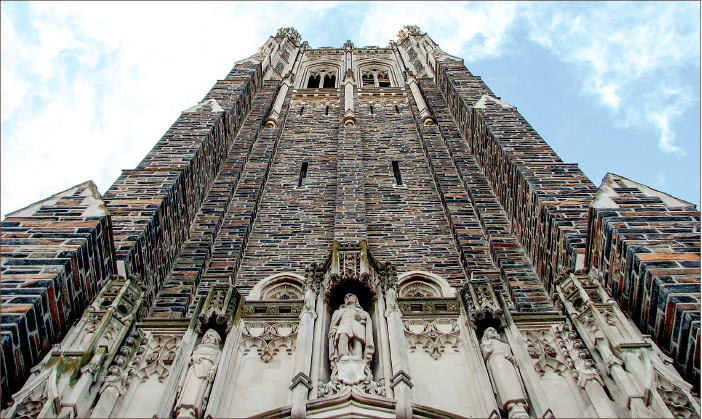Duke ditches Muslim prayer

After much criticism, Durham school pulls plug on broadcasting Islamic call

Scrapped — A North Carolina university created controversy with new chapel policy, attracting opinions from religious leaders like Rev. Franklin Graham and Dr. Robert Jeffress. Google Images
As of Thursday, Jan. 15, Duke University has reversed its decision to allow a weekly Muslim call to prayer to ring from its chapel’s speakers. Is this reversal of the decision that gave Muslim worshipers the spotlight intolerant or simply appropriate?
“The Durham university had said (Jan. 13) it would permit a weekly, three-minute chant by members of the Duke Muslim Students Association to be ‘moderately amplified’ via speakers in the Duke Chapel’s bell tower,” Adam Bell of the Charlotte Observer wrote.
I appreciate Duke’s attempt to not only tolerate but also celebrate different religions in order to engage others. Since the school was founded by Quakers and continued by the Methodist denomination, the religious focus of Duke has changed.
World religions are represented on many college campuses in America, and Duke is clearly trying to respect and encourage freedom of religion. I believe that America is built on the freedom and right that we can believe what we want to believe.
Therefore, Muslims, Buddhists, Christians and anyone else should have the opportunity in a public setting. The problem is, they do not.
In fact, Duke’s Women’s Center canceled a motherhood event because the event’s sponsor was involved in pro-life activism in 2010.
“Those who cry loudest for tolerance are often the most intolerant when it comes to viewpoints they disagree with,” Dr. Robert Jeffress, a pastor and Fox News contributor, said of Duke’s claim to be religiously accepting. “This is a travesty coming from a school that was originally founded as a Christian school by Methodists
and Quakers.”
Also, in light of what has happened over the past few weeks with the Charlie Hebdo attack in France, the Nigerian massacre by Boko Haram and various other religious extremist attacks, I do not believe that it is wrong for Duke to reverse its decision.
Although Duke made this declaration of celebrating the Muslim religion, the university decided against allowing the public chapel broadcast.
This may have also been due largely to Franklin Graham, son of evangelist Billy Graham, and his proclamation that university donors should pull their monetary support.
“As Christianity is being excluded from the public square and followers of Islam are raping, butchering, and beheading Christians, Jews and anyone who doesn’t submit to their Sharia Islamic law, Duke is promoting this in the name of religious pluralism,” Graham wrote in a post on his Facebook page.
Perhaps Graham caused the leaders of Duke to shake in their boots a bit at the thought of losing funding, but that may not be the only reason why they reversed their decision. The world has been on edge dealing with the religious extremist attacks around the world in the past few weeks. Therefore, it is a bit difficult to bring the spotlight to the religion that is behind a lot of fear and pain.
It is true that not every Muslim is an extremist, and believers in the Muslim faith have every right to worship what they want to as long as they are not harming others.
Duke clearly sees that freedom of religion is vitally important to an American college campus. Yet, how far is too far? If Duke were to permit a Muslim prayer to be broadcasted all over campus on a weekly basis, would they then also permit the Lord’s Prayer for Christians to be announced or the Refuge Prayer for Buddhists? Where does it stop?
I think Duke dug itself a hole when it announced that it would be having a Muslim call to prayer in the first place. Since Duke reversed its decision Jan. 15, it has now decided to allow Muslim students to pray outside of the chapel. This is a much better solution, because it is more of a balance between freedom and personal beliefs.
Yet, it may have gone about the proclamation of religious freedom in the wrong way. Therefore, the decision is not intolerant of Muslim religion or any religion that is represented on the campus. The decision is simply appropriate.
Diaz is an opinion writer.
